Delilah S. Dawson's Blog, page 19
March 5, 2013
new headshots ahoy
I'm going to put these here. For reasons.
All images by Dolorianne Morris, taken at the Old City, New Blood con in St. Augustine, FL in February. Hence the beach.
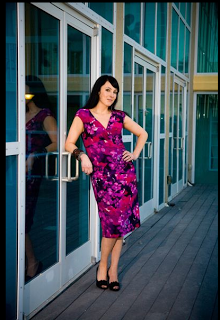
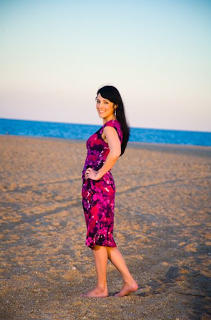
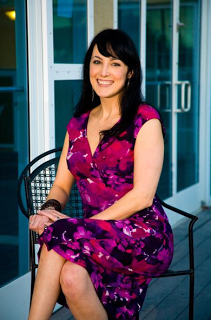
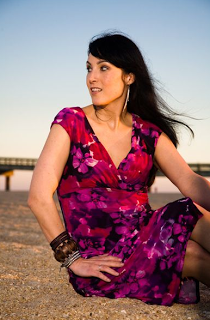
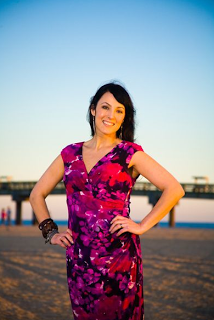
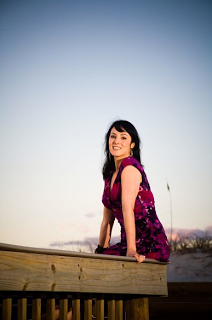
You can see the one I'm using as my head shot on the About page up there. But these ones make me happy. Because the beach at sunset makes me happy.
***
All images by Dolorianne Morris, taken at the Old City, New Blood con in St. Augustine, FL in February. Hence the beach.






You can see the one I'm using as my head shot on the About page up there. But these ones make me happy. Because the beach at sunset makes me happy.
***
Published on March 05, 2013 18:48
Fireside needs your help!
Fireside Magazine needs your help to reach funding in the next twelve hours.
Why might you wish to help?
1. You want to join over 500 people in supporting original fiction and artwork.
2. You believe authors and artists deserve to make a living wage doing what they love.
3. You like the fantastic pledge gifts, including original art, signed books, cut glass decanters, and the chance to have your name used in my short story or to get your hands on one of my coveted Wicked as She Wants printed ARCs, of which there are less than 20 and which were available only at my New York book signing.
4. You want to read my short story, LOVE SONG OF THE LIZARD BOY, which is my chance to visit the story of Eblick, the lizard boy in Criminy's Clockwork Caravan. Let's face it-- scaly green dudes with venomous fangs don't rate high as romantic heroes, so short fiction is really my only chance to explore the world of a character that many readers have professed to dig. Sad as it is, in order to continue my dream of being a professional author, I have to hit the paying jobs first. Without projects like Fireside, risky bits of fiction might slip right past my fingertips and never get told. And this is a story I want to tell.
5. Because you like stories.
6. Because you like me.
7. Because Chuck Wendig already told you to on his blog.
8. Because you are awesome.
Remember, even $1 or $2 helps. Every little bit helps.
The clock is ticking. Please help us reach our goal.
Thanks for listening. Now, back to your regular chicanery.
***
Published on March 05, 2013 07:19
March 4, 2013
video: that daring young girl on the flying trapeze
I had three objectives in NYC:
1. Meet my agent and editors2. Attend Sleep No More3. Take a flying trapeze class.
I was 3 for 3. More on that later. For now, enjoy my first catch on the flying trapeze, courtesy of Ace, Ross, Kevin, and my amazing and talented pal Parisa at STREB, NYC.
I also learned this trick:

When I was a little girl, I loved ballet and gymnastics. Around the age of 7, I was told that I didn't have the right body for either discipline, and that I was wasting my time and my parents' money. I quit, and I was heartbroken.
Well, guess what, mean lady who told me I was too pudgy to be an acrobat?
I CAN FLY.
***
Published on March 04, 2013 06:30
February 27, 2013
on writing: how not to be boring
The question: How do you bring spark to every scene?
The answer: With a box of matches.
The real answer: Your brain is the box of matches.
*
When you first have a story idea, it's so exciting that it takes over your life, and you simply have to start writing. But for most of us, somewhere along the way, we lose that spark and writing becomes a chore. That's when lots of people give up, sensing that if the spark is gone, the book isn't worth writing, and they should just move on to the next shiny new idea.
WRONG.
The problem isn't that the flames went out. It's that you have to relight the fire every day. Here's how.
1. Make every single scene important.
You have to find something in every scene that adds to the book and keeps the reader reading. Not just X happened, but X happened because tragic childhood reveal, or X happened and there was a beautiful detail that will be important later, or X happened and there was conflict. Personally, I turn on my playlist and think about the next scene as I'm driving to work, hunting for that tiny spark that will make it better and keep the reader curious.
2. Put conflict on every page.
The conflict might just be that the character stubs her toe, or forgot something, or annoys another character by arguing over the cost of popcorn. But if everything is just going along easily without a single annoyance or problem, then the reader loses interest. When you're excited about getting to the next "big" scene, sometimes you gloss over the linking scenes. And that's boring.
3. Make things more complicated.
Same action, but with additional mystery, back story, and feelings. Better, right? Hallways don't have to be boring.
4. Keep a list of what's to come.
Your brain is not the best place to store all the details you want to include in your story. If you get an idea, write/type it down. Maybe it's a turn of phrase, a big reveal, a new character, an argument, an interesting detail or rule of your world. Your brain will send you hints about your story that won't be important until later, and it's all too easy to say, "Thanks, brain! I'll remember that!" and then forget. You're basically receiving a trail of breadcrumbs from your subconscious, and sometimes they fall out of order.
5. When in doubt, leave a placeholder.
Sometimes, I'm so excited about a certain scene that I want to skip the linking scenes before it. When I can't get a certain scene out of my head, sometimes I'll leave a placeholder and just write the damn thing. I leave things like (insert backstory about childhood fear of dogs) or (minor argument, grow as friends) or just (get from airship bordello to train). And then I'll write the scene that's keeping me up at night so it'll get out of my head. Sometimes it's easier to fill in the blanks later using details you won't have until afterward rather than gloss over a scene that could have been great.
6. Always remember that the first draft is vomit.
It is utterly impossible to make every scene exciting in the first draft. Some scenes will be naturally amazing, others will be bland but functional. When you're on the first draft, your job is to churn out some raw ore that can be refined later. Whether you leave a few placeholders or just say "she walked down the hall", be confident that you can always polish it up later, when you know exactly what's going on and why.
7. Pretend you're a reader and hunt down boredom.
Once you've got a decent draft hammered out, print it out and start reading it quickly, pen in hand. Every time you're bored or find yourself skipping words, circle that passage. If you're bored, the reader's going to be bored. Go through the entire book, if you can, and see if there's anything these scenes have in common. Sometimes, you learn that you're too heavy on description, you bog down the action with character thoughts, or you have a character who just isn't sparking on the page. Look at all the things you've circled and come up with a plan to make everything more exciting. Look at the big picture and get one-on-one to find out why each scene isn't working.
Extra credit: After you've done your circling and really tightened up your draft, give it to a friend who's not afraid to hurt your feelings. Hand them a pen and ask them to make a note every time they get bored. Have them tell you why. Buy a box of tissue and make some brownies and fix that shit.
8. Feelings, senses, and weirdness.
These three things help your reader connect with a character in exciting ways. How the character feels, whether communicated through their dialog and actions or interior thoughts. What your character sees, hears, smells, tastes, and physically feels. And what makes their world different from what's normal. Some characters have tics, like tapping fingers or blinking with both eyes. Just remember: normalcy is boring, so if your character is rooted in normalcy, you're going to have to shake them up through external forces.
9. Change is good.
It's hard to be satisfied as a reader if something doesn't change. Quite often, the story changes the character as a person, whether because they live through something dangerous, grow as a person, find love, or lose something important. Your character on the final page should be somehow different from what the reader saw on the first page. The change should unfold gradually through the book, and even scenes that seem boring at first can reveal those moments that all humans can connect with, the little epiphanies and understandings and moments of mercy. Simply sitting on a couch in an empty room can be exciting, if you do it right.
10. Make it YOUR story.
You have a unique way of telling your story that insures that no one else in the world could write it. Don't lose that. Your voice will develop naturally over time, and it will inform every scene. Don't fall back on boring old cliches like "it struck her like a bolt of lightning" if your instinct is that it struck her like a gnome with a bag of cobras. Take risks. You'll have plenty of time to tweak them later if they stand out from the rest of the story.
11. Accept that you can't make everything exciting.
No matter how hard you try, every single second isn't going to be mind-blowingly insane. Michael Bay tried that with Transformers, and look where it got him. You need down time to make those crazy explosions interesting. So just remember that even after a dozen revisions and passing it on to friends and doing the very best you can, there comes a time when you need to accept that the story is probably good enough and push it out into the world, whether that's into querying, your agent's inbox, or your self-pub venue.
Because you know what's really exciting?
Writing the next book.
So pull out the next match and set something else on fire.
***
Caveats: Your mileage may vary. These tips come from my own writing experience, and your journey may be a different one. This is not the only way to do things. Please don't set *me* on fire.
Questions?
HIT ME. Preferably not with fire.
The answer: With a box of matches.
The real answer: Your brain is the box of matches.
*
When you first have a story idea, it's so exciting that it takes over your life, and you simply have to start writing. But for most of us, somewhere along the way, we lose that spark and writing becomes a chore. That's when lots of people give up, sensing that if the spark is gone, the book isn't worth writing, and they should just move on to the next shiny new idea.
WRONG.
The problem isn't that the flames went out. It's that you have to relight the fire every day. Here's how.
1. Make every single scene important.
You have to find something in every scene that adds to the book and keeps the reader reading. Not just X happened, but X happened because tragic childhood reveal, or X happened and there was a beautiful detail that will be important later, or X happened and there was conflict. Personally, I turn on my playlist and think about the next scene as I'm driving to work, hunting for that tiny spark that will make it better and keep the reader curious.
2. Put conflict on every page.
The conflict might just be that the character stubs her toe, or forgot something, or annoys another character by arguing over the cost of popcorn. But if everything is just going along easily without a single annoyance or problem, then the reader loses interest. When you're excited about getting to the next "big" scene, sometimes you gloss over the linking scenes. And that's boring.
3. Make things more complicated.
a. She walked down the hall and opened the door with trembling hands, knowing that her destiny waited on the other side.
b. She tiptoed down the hall, her ears alert for the sound of tiny, skittering paws. Her uncle had mentioned offhand that the house was overrun with white mice, which were known for their glowing red eyes. She'd seen one under the kitchen sink and would have sworn it had fangs. A strange green glow under the library door made her wish she could run back to her room and hide, but Uncle Mac had promised to answer all her questions about the strange old house, so she turned the crystal knob with trembling hands.
Same action, but with additional mystery, back story, and feelings. Better, right? Hallways don't have to be boring.
4. Keep a list of what's to come.
Your brain is not the best place to store all the details you want to include in your story. If you get an idea, write/type it down. Maybe it's a turn of phrase, a big reveal, a new character, an argument, an interesting detail or rule of your world. Your brain will send you hints about your story that won't be important until later, and it's all too easy to say, "Thanks, brain! I'll remember that!" and then forget. You're basically receiving a trail of breadcrumbs from your subconscious, and sometimes they fall out of order.
5. When in doubt, leave a placeholder.
Sometimes, I'm so excited about a certain scene that I want to skip the linking scenes before it. When I can't get a certain scene out of my head, sometimes I'll leave a placeholder and just write the damn thing. I leave things like (insert backstory about childhood fear of dogs) or (minor argument, grow as friends) or just (get from airship bordello to train). And then I'll write the scene that's keeping me up at night so it'll get out of my head. Sometimes it's easier to fill in the blanks later using details you won't have until afterward rather than gloss over a scene that could have been great.
6. Always remember that the first draft is vomit.
It is utterly impossible to make every scene exciting in the first draft. Some scenes will be naturally amazing, others will be bland but functional. When you're on the first draft, your job is to churn out some raw ore that can be refined later. Whether you leave a few placeholders or just say "she walked down the hall", be confident that you can always polish it up later, when you know exactly what's going on and why.
7. Pretend you're a reader and hunt down boredom.
Once you've got a decent draft hammered out, print it out and start reading it quickly, pen in hand. Every time you're bored or find yourself skipping words, circle that passage. If you're bored, the reader's going to be bored. Go through the entire book, if you can, and see if there's anything these scenes have in common. Sometimes, you learn that you're too heavy on description, you bog down the action with character thoughts, or you have a character who just isn't sparking on the page. Look at all the things you've circled and come up with a plan to make everything more exciting. Look at the big picture and get one-on-one to find out why each scene isn't working.
Extra credit: After you've done your circling and really tightened up your draft, give it to a friend who's not afraid to hurt your feelings. Hand them a pen and ask them to make a note every time they get bored. Have them tell you why. Buy a box of tissue and make some brownies and fix that shit.
8. Feelings, senses, and weirdness.
These three things help your reader connect with a character in exciting ways. How the character feels, whether communicated through their dialog and actions or interior thoughts. What your character sees, hears, smells, tastes, and physically feels. And what makes their world different from what's normal. Some characters have tics, like tapping fingers or blinking with both eyes. Just remember: normalcy is boring, so if your character is rooted in normalcy, you're going to have to shake them up through external forces.
9. Change is good.
It's hard to be satisfied as a reader if something doesn't change. Quite often, the story changes the character as a person, whether because they live through something dangerous, grow as a person, find love, or lose something important. Your character on the final page should be somehow different from what the reader saw on the first page. The change should unfold gradually through the book, and even scenes that seem boring at first can reveal those moments that all humans can connect with, the little epiphanies and understandings and moments of mercy. Simply sitting on a couch in an empty room can be exciting, if you do it right.
10. Make it YOUR story.
You have a unique way of telling your story that insures that no one else in the world could write it. Don't lose that. Your voice will develop naturally over time, and it will inform every scene. Don't fall back on boring old cliches like "it struck her like a bolt of lightning" if your instinct is that it struck her like a gnome with a bag of cobras. Take risks. You'll have plenty of time to tweak them later if they stand out from the rest of the story.
11. Accept that you can't make everything exciting.
No matter how hard you try, every single second isn't going to be mind-blowingly insane. Michael Bay tried that with Transformers, and look where it got him. You need down time to make those crazy explosions interesting. So just remember that even after a dozen revisions and passing it on to friends and doing the very best you can, there comes a time when you need to accept that the story is probably good enough and push it out into the world, whether that's into querying, your agent's inbox, or your self-pub venue.
Because you know what's really exciting?
Writing the next book.
So pull out the next match and set something else on fire.
***
Caveats: Your mileage may vary. These tips come from my own writing experience, and your journey may be a different one. This is not the only way to do things. Please don't set *me* on fire.
Questions?
HIT ME. Preferably not with fire.
Published on February 27, 2013 14:07
February 26, 2013
I have a spam clone, and Twitter won't kill it.
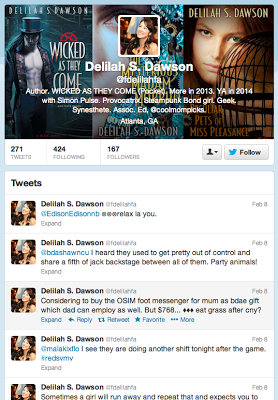
Looks like me, doesn't it?
That's my photo-- check the About tab at the top of this blog.
Those are my books-- check the Books tab at the top of this blog.
And that's my bio.
But it's not me. @fdelilahfa is a fake spam clone account that Twitter won't destroy until I *FAX* them a copy of my government-issued ID, which I can't do until I find a Delorean and some banana peels, because... fax.
I've asked my friends on Twitter and Facebook to report this fake account as spam, which will hopefully have it suspended. It *was* actually suspended for about ten minutes... but now it's back.
I don't believe it's a personal/creeper thing. I think it's a spam company trying to yoink a few followers and lure them with possibly-real nonsense so that it can one day turn into a Via6ra or raspberry ketone bilge-pumping machine.
But it's creepy as hell, and I don't like it a bit. My nonsense is lovingly crafted, dammit.
In any case, I can't believe that Twitter has such a technologically lame way of eradicating what's so obviously a spam account. So for now, I'll bombard it with reports and blocks and hope it dies under them like a Redshirt under a mound of tribbles.
Remember kids: @DelilahSDawson is the only place on Twitter for my particular brand of whimsical, sexy nonsense.
* * *
Published on February 26, 2013 07:45
February 24, 2013
Anachrocon!
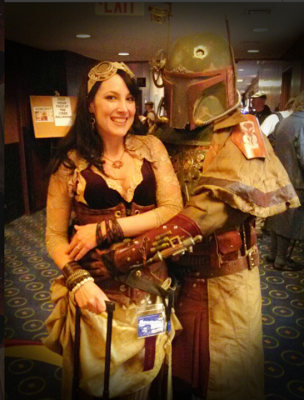
That's right. It's Steampunk Boba Fett.
Add that to last year's meeting of Steampunk Darth Vader....
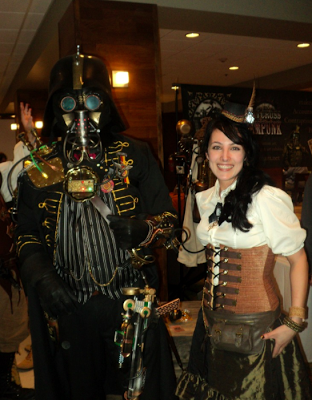
I'm definitely leaning toward the Dark Side.I saw Steampunk Leia, but she was too busy eating rum truffles slathered in Nutella to get a photo.
Anachrocon is a great Atlanta con focusing on Alt History, with tracks on Culture, History, Science, Fashion, Fabrication, Horror, Gaming, and more. I spoke on panels for Women in Steampunk, the State of Steampunk, How to Write Steampunk for Profit, Victorian Horror, Edward Gorey, and Dracula's Bloodlines. It was busy, but in the best way possible.
Thanks for a fantastic weekend, Anachrocon!
* * *
Published on February 24, 2013 13:02
February 18, 2013
shh. I'm writing.
I'm writing.
It's hard.
That's what she said.
Shut up.
*
If you want something more in-depth, follow me on Twitter.
I can only think in 140-character bursts.
The rest of the words are vitally needed for the first draft of Blud 3, WICKED AFTER MIDNIGHT, which is sucking my soul like a word tick.
Suck suck suck.
That's what she said.
SHUT. UP.
* * *
It's hard.
That's what she said.
Shut up.
*
If you want something more in-depth, follow me on Twitter.
I can only think in 140-character bursts.
The rest of the words are vitally needed for the first draft of Blud 3, WICKED AFTER MIDNIGHT, which is sucking my soul like a word tick.
Suck suck suck.
That's what she said.
SHUT. UP.
* * *
Published on February 18, 2013 16:02
February 11, 2013
Olde City, New Blood, Tons of Awesome
If you're an author, a book blogger or reviewer, or simply a fan of paranormal romance and urban fantasy, keep a close eye out on the Olde City, New Blood con that debuted in St. Augustine, FL this year. Because if they're doing it again next year and forget to put a restraining order on me, I'M IN.
So here we go, and I'll add new photos, should they roll in on social media:
 It started out with coffee in my favorite mug. I WAS READY.
It started out with coffee in my favorite mug. I WAS READY.
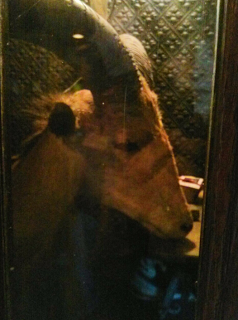
And then we drove seven hours and got there and went to dinner at an Irish pub that keeps a sheep in a phone booth.
As you do.
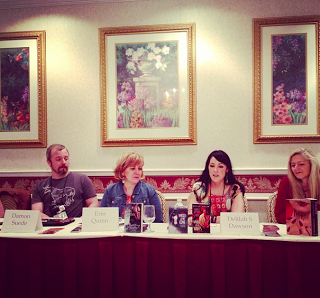
The next morning things got serious. Kind of. With informative, interesting panels with super fun people. Damon Suede is so hilarious and fantastic that I bought my first M/M just because I know he'll rock it. Erin Quinn and I share the same amazing editor at Pocket. And Lucienne Diver is brilliant and a magnet for cute boys with beards.
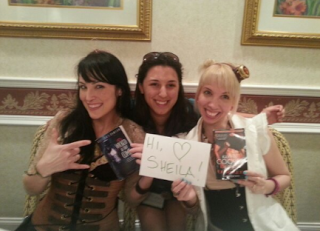
One of the best things about Olde City, New Blood was getting to meet all the book bloggers and reviewers that I looooove from the internet. I squeed all over the poor girls! This is Casey from Literary Escapism, who is BOSS.
Meeting my long lost twin Karina Cooper was also a major bonus.
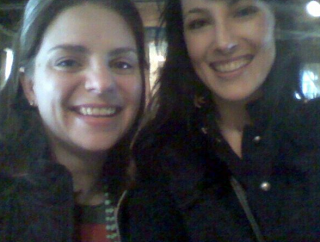
And finally meeting my agent, Kate McKean! She's represented me for almost two years now, and we could chat on the phone all day, but meeting in person was like finding a long lost best friend.
Here's a hint: When your agent says, "I'll have a pecan waffle and bacon,"you always say, "I WILL HAVE EXACTLY THE SAME THING, PLEASE."

And then Karina, Casey, and I went swimming. In the ocean. In February.Because we are hard core.
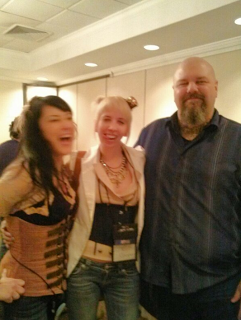
Me, Karina, and James R. Tuck. I always laugh with these people. Always.

My friends are so forgiving. We rolled up to the hotel ten minutes early, and I was allTAKE ME TO THE BEACH NOW PLS !!!And they totally did. And I immediately felt better.
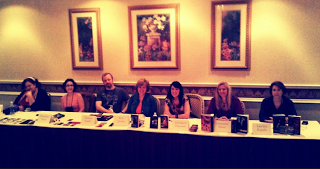
I wasn't sure how this panel would go. Authors spontaneously produced flash fiction according to audience prompts. So they said, "the hero is a girl, it's a horror/romance, she's on a space ship overrun with platypuses, GO!" and then we went down the line telling the story.If they put up a video, I will link it, because we were DYING OF LAUGHTER."Don't worry: they don't come out furry."
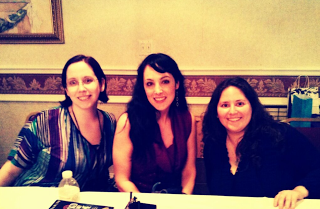
Alex Hughes, me, Jess Haines.Best book signing placement EVER.
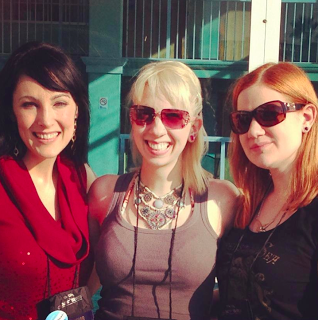
Me, Karina Cooper, the ever-so-lovely Chelsea, who took pics of us frolicking in the ocean and made sure we weren't swept away or eaten by sharks.
Also, CHARLIE'S ANGELS. Right?
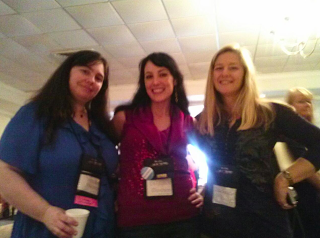
On the left is Jennifer Morris, the con's coordinator and creator. I am so grateful for the amazing weekend she put together and the wonderful people I was able to meet and the marvelous panels I was on and EVERYTHING. Utterly brilliant. And Lucienne, on the right, is also rad.
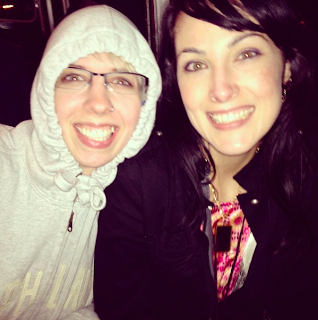
If you ever wondered what would happen if Karina Cooper and I went on a fabulous but freezing cold ghost tour and then rode home in a trolley with no doors or windows while eating exhaust and mosquitoes, the answer is that we would huddle together, and she would put up her hoodie, and I would talk to her in my Eric Cartman voice and call her Kenny.

It's always bittersweet, leaving a con, and it's especially hard for me to leave the ocean.I'll be back soon, St. Augustine!I miss you already.***
So here we go, and I'll add new photos, should they roll in on social media:
 It started out with coffee in my favorite mug. I WAS READY.
It started out with coffee in my favorite mug. I WAS READY.
And then we drove seven hours and got there and went to dinner at an Irish pub that keeps a sheep in a phone booth.
As you do.

The next morning things got serious. Kind of. With informative, interesting panels with super fun people. Damon Suede is so hilarious and fantastic that I bought my first M/M just because I know he'll rock it. Erin Quinn and I share the same amazing editor at Pocket. And Lucienne Diver is brilliant and a magnet for cute boys with beards.

One of the best things about Olde City, New Blood was getting to meet all the book bloggers and reviewers that I looooove from the internet. I squeed all over the poor girls! This is Casey from Literary Escapism, who is BOSS.
Meeting my long lost twin Karina Cooper was also a major bonus.

And finally meeting my agent, Kate McKean! She's represented me for almost two years now, and we could chat on the phone all day, but meeting in person was like finding a long lost best friend.
Here's a hint: When your agent says, "I'll have a pecan waffle and bacon,"you always say, "I WILL HAVE EXACTLY THE SAME THING, PLEASE."

And then Karina, Casey, and I went swimming. In the ocean. In February.Because we are hard core.

Me, Karina, and James R. Tuck. I always laugh with these people. Always.

My friends are so forgiving. We rolled up to the hotel ten minutes early, and I was allTAKE ME TO THE BEACH NOW PLS !!!And they totally did. And I immediately felt better.

I wasn't sure how this panel would go. Authors spontaneously produced flash fiction according to audience prompts. So they said, "the hero is a girl, it's a horror/romance, she's on a space ship overrun with platypuses, GO!" and then we went down the line telling the story.If they put up a video, I will link it, because we were DYING OF LAUGHTER."Don't worry: they don't come out furry."

Alex Hughes, me, Jess Haines.Best book signing placement EVER.

Me, Karina Cooper, the ever-so-lovely Chelsea, who took pics of us frolicking in the ocean and made sure we weren't swept away or eaten by sharks.
Also, CHARLIE'S ANGELS. Right?

On the left is Jennifer Morris, the con's coordinator and creator. I am so grateful for the amazing weekend she put together and the wonderful people I was able to meet and the marvelous panels I was on and EVERYTHING. Utterly brilliant. And Lucienne, on the right, is also rad.

If you ever wondered what would happen if Karina Cooper and I went on a fabulous but freezing cold ghost tour and then rode home in a trolley with no doors or windows while eating exhaust and mosquitoes, the answer is that we would huddle together, and she would put up her hoodie, and I would talk to her in my Eric Cartman voice and call her Kenny.

It's always bittersweet, leaving a con, and it's especially hard for me to leave the ocean.I'll be back soon, St. Augustine!I miss you already.***
Published on February 11, 2013 08:47
January 31, 2013
the best way to help your favorite author
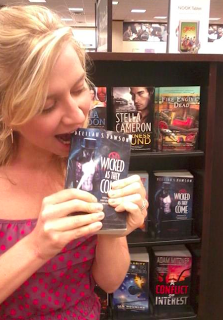 Dear friend and fellow author Harley May takes a bite out of Crim on launch day last year.
Dear friend and fellow author Harley May takes a bite out of Crim on launch day last year.I have been unknowingly doing my fellow authors a disservice:
I've been waiting to buy their books.
That is, when I hear their book is out, I wish them a Happy Book Birthday on Twitter, add their book on Goodreads, share their FB status, "like" their book on Amazon and Barnes & Noble, and do all of the easy social media methods of supporting them from my pajamas.
But then I typically wait until I see them at a con to buy their book and have them sign it.
And that, dear friends, is a bit of a sloppy unkindness.
The best way you can help an author is to buy their book THE WEEK IT COMES OUT.
That's when numbers count the most for bestseller lists, Amazon rankings, and publisher scrutiny. That's when authors are desperate, watching numbers online, praying for their big break. That's when your $8 can do the most good for someone who counts on book sales to continue doing what they love.
So if you're going to buy the book anyway, I urge you to consider buying an author's book the week it comes out, especially on the day it launches. You'll save a few dollars, at most, by waiting, but it makes a big difference to the author's life, livelihood, and career. Then, if you ever get to meet them, you can just bring it along and have it signed. And if you really love them, buy an extra copy at their book signing or launch party and give it to a friend.
Because the second best way you can support an author is to convince someone else to buy their books.
Other things you can do to make sure your favorite writer gets to keep writing:
* Pre-order the book to let the publisher know how anxious you are.
* Leave a review at Goodreads, Amazon, or Barnes & Noble
* Tweet a link to their book and a few warm words of praise on Twitter
* Use your Facebook or Google+ status to leave a link and some praise
* If you participate in online forums, mention their book
* Go to the book signing or launch party or visit them at a con, even if you don't buy anything
* Post their book cover on your Pinterest board
* Write a book review on your blog or post a video on YouTube
* Ask for their book at your local bookstore. If they don't carry it, urge them to pick it up and tell them how much you like it.
* Find out which local indie bookstore the author uses and request a signed or personalized copy
* Buy/wear author swag. They probably have t-shirts, bracelets, bumper stickers, buttons, or something that you can wear as a conversation starter.
* If you're in the bookstore and see someone standing in front of your author's genre, ask that person if they've read it and encourage them to buy it. Put it in their hands for bonus points, as people are more likely to buy things they've touched.
* Take a picture of their book in a bookstore, especially of you holding it, and post it online. A picture's worth a thousand words on social media.
* In as few or as many words as you wish, tell the author how you feel. Email, Twitter, FB-- it doesn't matter. Some days, writing can kick you in the nads, and a few kind words can keep someone going even after the Swamp of Sadness has swallowed their Artax.
They say the #1 way to sell books is word of mouth, so if you love a book/author, be that mouth.
***
This public service announcement is brought to you by someone whose next book comes out April 30.
Published on January 31, 2013 09:13
January 29, 2013
on writing: embrace your madness
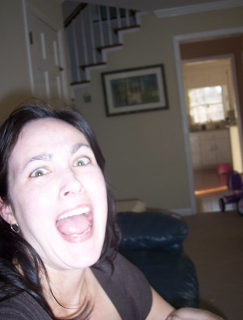
See this woman? She's insane.
Well, she was. It was 2009. But she got better.
Let me explain.
***
I was reading author bios for a con I'll be attending later this year, and I saw one thing pop up again and again: lifelong dedication.
She has been writing since she could hold a pencil.
He always knew he wanted to be a writer.
She has an MFA and taught writing at the college level.
Now, I'm a traditionally published author, but I find that intimidating. Know why?
I started drawing as soon as I could hold a crayon.
I always knew I wanted to be an artist.
I have a BA in Studio Art, which is a pretty useless piece of paper.
I have never taken a single writing course and feel like a n00b CONSTANTLY.
But you know what?
That doesn't make me any less of a writer.
See, the day before my daughter was born in 2006 was my last day in an office job at a gallery. After years of careful planning, I was going to be a stay-at-home mom. And that was enough for me, right up until 2009, when my second child was about nine months old. He was nursing constantly, sleeping poorly, and projectile vomiting for seemingly random reasons, usually on me. I was running on less than three hours of sleep a night.
To be quite honest, I was hallucinating. I would lay beside him at night, nursing him back to sleep and imagining that talking rats were skulking in the walls.
And because my brain was completely muddled, starving, and mixed up, suddenly that voice that always told me I couldn't do the impossible... went silent. After all, if talking rats can live in the walls, I could write a book, right?
Right.
First a truly terrible book about a harried young mother who went on a cruise and accidentally slept with a god, and then a kids' book about... talking rats that lived in the walls.
By the time I finished my second book, I was getting enough sleep to be sane. And my internal naysayer came right back to life.
You can't get an agent. You can't sell a book. You're not trained. You have no credentials. You don't know what you're doing. You aren't in NYC. You don't know anybody in the business. You're a stay-at-home mom who sits on the couch all day, attached to a parasitic baby. You're an artist, and that's what you're supposed to be, even if you haven't wanted to paint in a year.
And I told her to shove it, because if I could produce two tiny people and keep them alive and then write two books, I could do goddamn anything I wanted to do.
Shortly after that, I started querying and racking up rejections from agents. And then, a few months later, I found an agent. And then, a few months later, that book didn't sell. But I was already writing a new book. And almost one year after finding an agent, she sold the book that would become Wicked as They Come. And a year after that, she sold my first YA.
Why do I tell you this?
Because I want you to understand that I wrote my first book in 2009, at age 32, with a baby in my lap and so crazy from lack of sleep and the stress of young motherhood that I would get scared at night and cry alone because I thought I was totally losing it.
That book was my escape. And my salvation.
I found out who I was and what I was supposed to do at what might have been my weakest point as a human being. I stumbled upon it *because* I was at my weakest point. Because I was such a wreck that I didn't think to doubt myself.
And then I just surfed that wave the rest of the way in.
Wherever you are in your life, if you want to write, WRITE. It's hard work, and it doesn't pay as well as you think it will, and there will be days when you want to move to Hawaii and be the person that puts whipped cream on waffles, because that would be pretty easy by comparison, plus WAFFLES. But your lowest point can be transformative.
When I was desperate, insane, unwashed, unslept, hopeless, covered in baby vomit, and completely lost, I found myself.
You can, too.
* * *
Published on January 29, 2013 09:03



